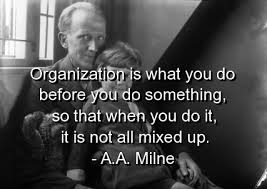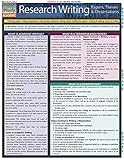Preparing To Write A Credible Article: How To Effectively Research Your Topic

Planning And Creating A Foundation
Writing takes more than skill, good grammar and impressive phrases. Keyword searches and how to maximize traffic sources is copiously searched and reported. Though, commonly left out is the need for information accuracy. Documenting facts can be a passing thought for those of us that write off the cusp about common knowledge or fictional writers.
Often research is left to those that write non-fictional material, though getting a better hold on any subject could lead a writer to study a particular subject. Not to mention some customers may require an expert opinion and thereby may send you exploring a book or five.
Remember whatever you write becomes your credibility and a name that will follow only you. Think about what imprint you intend to leave on the web or in the world in fact. Some may care and then there are those that don’t. It will not take long for you to be thrown in one of those piles. So if you intend on being taken seriously it is important to have well laid out quality written pieces.
“Research is defined as diligent and systematic inquiry or investigation into a subject in order to discover or revise facts, theories, applications, etc."
(dictionary.com)
Finding A Topic
Topics are a huge fuss and the basis of any written material. Planning an approach tactic is very important and can lead to either a very successful piece of work or something less desirable.
Settling on topics and subtopics before the writing process begins allows for easy organization of material. Once the research process ensues other subtopics may become relevant and thereby can be easily added.
Your Position Or Viewpoint
Certainly regurgitating old information will be no help to you or anyone, though putting a new spin on old information may be the viewpoint you have been looking for. Moving in a direction your own may look like a few stats throughout the article or a quote from a famous person that fits in well with what you are covering and then going off the cusp capturing a new perspective. Simply said, the finished product may be a fresh new look at old information.
One of my personal researched pieces is about schizophrenia. This mental health disorder has been widely studied and documented. I too have done countless hours of combing high and low through information as it pertains to schizophrenia. Though, a huge part of my research relied on my own information and a good hunch about how these individuals were treated by inpatient staff when in a mental hospital. That was my new look at old information with a brand spanking new viewpoint. Yes schizophrenia has been focused on greatly in the mental health world but little research to date is interested in the patient directly. So I did my own research and documented the findings.
What Are Good Sources
All right we have arrived to the point of this article. Sources pop up all around us when we do an online search. Type a term in Google identifying your main topic and watch the results blast right in your face. Let the flooding begin.
But what information is trustworthy? Finding the expert of the field is a great place to start. Something like knowing Stephen King would be a great resource on how to write horror fiction novels. Doing research on your topic should take the same approach. Find out how others have reported on your topic in the past. Look for sites that may regulate the subject you are writing about. For example, many of my articles relate to mental health, therefore, I know I can trust government sites such as National Alliance for Mental Illness or American Psychology Association. Trying to find government regulated sites or ones that have some regulated standard for posted information. Also, using peer reviewed journals and other material that may be found in online library sources prove to contain reliable data.
As a real life example, I thought to put in a search term and record the results as a method to my madness and show how I distinguish against the credible and unreliable sources.
I typed in the word – schizophrenia.
The top five results were National Institute of Mental Health (NIMH), Wikipedia, Mayo Clinic, Psychcentral.com, and Helpguide.org.
Out of the top results Wikipedia would be immediately thrown out. I would then look at the other four sources and make a determination in regard to the consistency of information related to my topic and subtopics. However, in my mind I would heavily rely on the information provided from NIMH as they have been a reliable resource for me in the past.
How often do you research a topic before writing?
What Are Bad Sources
Well before I mention this site I am sure you can all read my mind and I just used it above. First and foremost, do not use Wikipedia with the hopes of finding accurate information. The reason I stand behind that statement is Wikipedia allows the general public to make additions and changes to the sites plethora of information without specific regulations. Therefore, you can imagine the accuracy of information. It is like playing the game telephone line where one person tells a phrase to the person standing next to them and then it is repeated down the line. By the time the expression reaches the last person you better believe the phrase is something all its own and not how it started. That is my idea of Wikipedia.
Also, do not heavily rely on personal blogs or other personal websites. Other forum type websites are not the most reliable either. So any site that does not regulate their information, the best practice is avoid those sites. Avoid overly promotional sites that seem to be selling a product or out to gain business. Other ways to recognize an unworthy site are those that have grammar or structural errors. If the site does not pose the highest standards of quality then likely their information will follow.

Don’t Believe Everything You Read
It has been said for many years, do not believe everything you hear and/or read. As defined above, the term research implies the need to investigate. Therefore, prepping and planning consists of looking at various angles while gathering information. So writing an article must take a hands on approach mentality. It takes time to prepare before you write.
We have all read articles and scratched our head in wonder about where they found their evidence. Often despite taking a new angle, the information that has no basis for their accusations.
Again I cannot say it enough, your name is attached to everything you write so wouldn’t it be nice to be referred to as a trustworthy person who no matter the article title has well researched work.
Short Articles Vs. Research Papers
There is quantity and then there is quality of information all among us.
A short article intended to explain self-help tools or one that would be appropriate for Hubpages the research may not be as fulsome as what is required for a research paper. Short article research may rely on quick facts found in statistics or defining a term.
Research commonly revolves around the need of the author to drive home a particular point of view. With that in mind research articles tend to differ from an opinionated or self-help article. A research article uses a particular methodology that is unlike other styles of writing. In this case it may be apparent to use data reported from other peer-reviewed journals to help solidify and validate your stance. When writing a research article the reader will be interested in the time taken to explore the topic and will use your sources to either authenticate or discount your efforts.
Power With Numbers
It seems that most things in life are more powerful in higher numbers and quantities. Writing falls within those same principles. When writing about previously researched facts it is recommended to have no less than three sources. As the word count increases so should the sources. I say no less than three because finding two sources is quite easy, but being able to add another source will help to add value to your article.
Recommended Amount Sources
Article Length (words)
| # of Sources
|
|---|---|
100-1000
| 3
|
1001-5000
| 5
|
5001-10000
| 10
|
10000+
| unlimited but more than 10
|
Final Thoughts
Well planned out articles demonstrate and reflect high quality authorship. These are worthy pieces of information that will likely get you writing gigs and possible expert status. Writing for a living or as a pleasurable past time is a craft. Perfecting that act will produce fruits in many ways. Having well planned out and researched articles will offer results to be proud of.
The plan starts with a topic and developed subtopics. Research the chosen direction meant for your article. Lastly put it all together. Voila – not quite yet, don’t forget to edit and correctly site your sources.
Happy writing.










